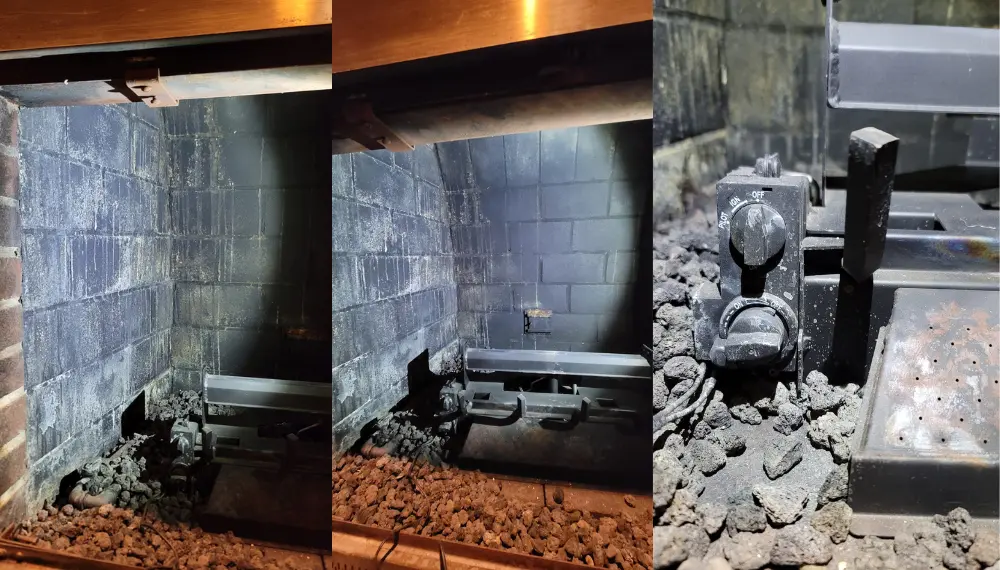Ah, the warmth of a gas fireplace—there’s nothing quite like it! Whether it’s the comforting glow on a chilly evening or the crackling ambiance that makes your living room feel like home, gas fireplaces are a beloved feature in many households. But what happens when that once-cheerful flame flickers out, leaving you in the cold? It’s a situation no one wants to face, but when your gas fireplace starts acting up, it’s crucial to know who to call for gas fireplace repair. This guide is here to help you navigate the process of finding the right professionals, understanding when it’s time to make the call, and what you can expect along the way. Let’s dive in and keep those flames alive!
Why Your Gas Fireplace Needs TLC
1. The Importance of Regular Maintenance
Just like your car or your HVAC system, your gas fireplace requires regular maintenance to keep it running smoothly. Over time, wear and tear can take a toll, leading to issues that could compromise its performance—or worse, its safety. Not only does regular maintenance ensure that your fireplace is running efficiently, but it also helps to extend its lifespan, saving you from costly repairs or even a full replacement down the line.
2. Common Problems with Gas Fireplaces
Gas fireplaces, while convenient and efficient, aren’t immune to problems. Here are some common issues that might leave you wondering who to call for gas fireplace repair:
- Pilot light won’t stay lit: If your pilot light keeps going out, it could be a sign of a faulty thermocouple or a dirty pilot orifice.
- Strange smells: A persistent odor, especially one that smells like rotten eggs, could indicate a gas leak—a serious issue that requires immediate attention.
- Soot buildup: Excessive soot on the glass or in the firebox is a sign of incomplete combustion, which could lead to carbon monoxide buildup.
- Burner issues: Uneven flames or difficulty igniting the fireplace might point to a problem with the burner or the gas supply.
- No heat: If your fireplace is on but isn’t providing heat, the problem could be with the gas valve or the thermostat.

Who to Call for Gas Fireplace Repair?
1. Certified Gas Fireplace Technicians
When it comes to gas fireplace repair, you don’t want just anyone poking around in there—after all, you’re dealing with gas lines! Certified gas fireplace technicians are trained specifically to handle the nuances of gas appliances. These pros know the ins and outs of gas fireplaces, from troubleshooting issues to performing complex repairs safely.
2. HVAC Specialists
HVAC (Heating, Ventilation, and Air Conditioning) specialists often have the expertise to handle gas fireplace repairs. Many HVAC companies offer gas fireplace services, and their technicians are trained to deal with the gas lines, valves, and other components that keep your fireplace running smoothly. If you’re already working with an HVAC company for your heating and cooling needs, they might be your go-to for fireplace repairs as well.
3. Plumbers with Gas Line Experience
It might not be the first thing that comes to mind, but plumbers with experience in gas lines can also be a great resource for gas fireplace repairs. Since gas fireplaces involve gas piping, a knowledgeable plumber can diagnose and fix issues related to gas leaks, valves, and connections. If your fireplace problem seems to be gas-related, a plumber might be just the person to call.
4. Fireplace and Chimney Service Companies
Fireplace and chimney service companies specialize in all things related to fireplaces, including gas models. These companies often employ certified technicians who can handle everything from routine maintenance to full-scale repairs. They’re also a good choice if your gas fireplace is part of a more complex setup, like a masonry or prefab chimney.
What to Expect During a Repair Visit
1. The Initial Inspection
When you schedule a service call, the technician will start with an initial inspection to assess the problem. This usually involves:
- Checking the pilot light, thermocouple, and ignition system
- Inspecting the gas lines and connections
- Examining the burner, logs, and firebox
- Looking for signs of soot, carbon buildup, or blockages
2. Diagnosis and Repair
Once the problem is identified, the technician will explain the issue and outline the necessary repairs. Common repairs might include:
- Replacing a faulty thermocouple or thermopile
- Cleaning the pilot orifice and burner assembly
- Repairing or replacing gas valves and lines
- Adjusting the burner for proper flame height and color
3. Testing and Safety Checks
After the repairs are complete, the technician will test the fireplace to ensure everything is working correctly. This includes:
- Verifying that the pilot light stays lit
- Checking for proper ignition and flame height
- Ensuring there are no gas leaks or carbon monoxide emissions
- Confirming that the fireplace is providing adequate heat
DIY Troubleshooting: When to Call the Pros
1. Simple Fixes You Can Try
Before you pick up the phone, there are a few basic troubleshooting steps you can try yourself:
- Check the pilot light: Make sure the pilot light is on. If it’s off, follow the manufacturer’s instructions to relight it.
- Inspect the thermostat: Ensure the thermostat is set to the correct temperature and mode.
- Replace the batteries: If your fireplace has a remote control, try replacing the batteries.
- Clean the glass: If the glass is dirty, clean it with a fireplace-approved cleaner to improve visibility and performance.
2. When to Call a Professional
If your troubleshooting efforts don’t resolve the issue, or if you’re dealing with any of the following problems, it’s time to call a professional:
- Gas smell: If you smell gas, turn off the fireplace and call a technician immediately—this is not something to handle on your own.
- Persistent pilot light issues: If the pilot light won’t stay lit, a professional will need to check the thermocouple, gas supply, and other components.
- Unusual noises: Hissing, banging, or popping sounds could indicate a problem with the gas pressure or burner, which needs professional attention.
- Visible damage: Cracked logs, damaged burners, or corroded components are signs that repairs are needed.
FAQs
1. How often should I have my gas fireplace serviced?
It’s recommended to have your gas fireplace serviced once a year. Regular maintenance helps prevent issues and ensures your fireplace is operating safely and efficiently.
2. Can I clean my gas fireplace myself?
Yes, you can clean the glass and exterior surfaces yourself. However, deeper cleaning and maintenance, like checking the burner and gas lines, should be left to a professional.
3. What should I do if I smell gas near my fireplace?
If you smell gas, turn off the fireplace, open windows for ventilation, and call a professional immediately. Don’t attempt to fix the issue yourself, as gas leaks can be extremely dangerous.
4. Why is my gas fireplace not producing enough heat?
If your gas fireplace isn’t providing enough heat, the problem could be with the gas valve, thermostat, or burner. A professional can diagnose and fix the issue to restore proper heating.
5. Are gas fireplace repairs covered by homeowners insurance?
It depends on your policy and the cause of the damage. Some homeowners insurance policies may cover repairs due to accidental damage or specific events, but routine maintenance and wear-and-tear are typically not covered.
